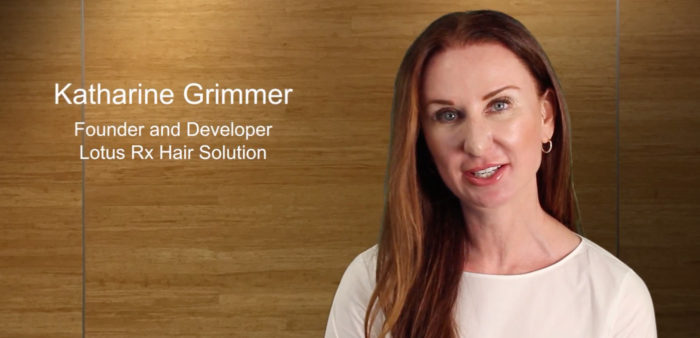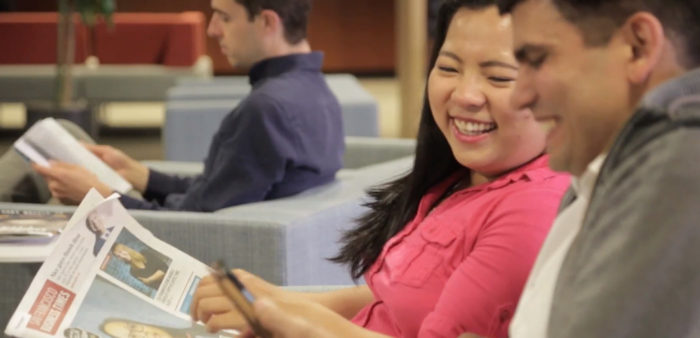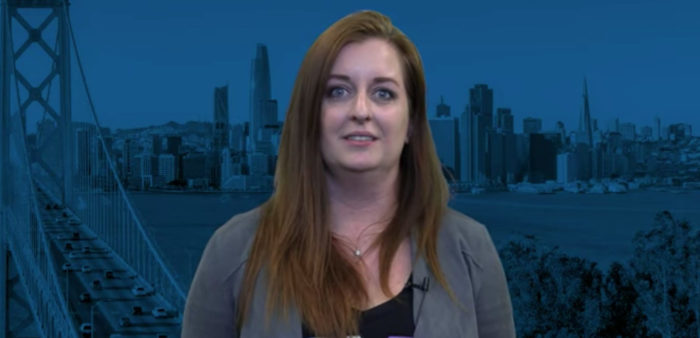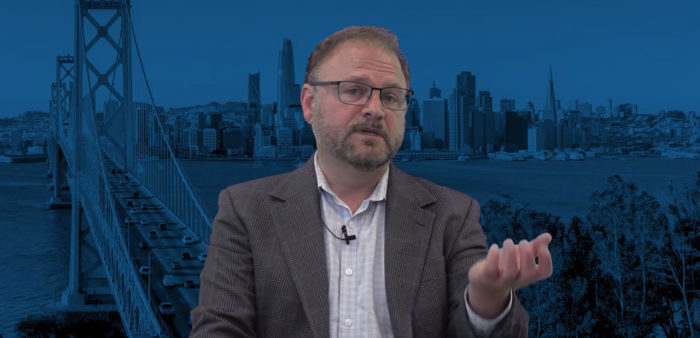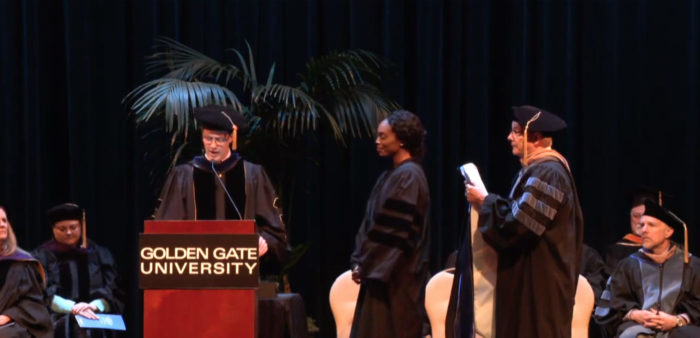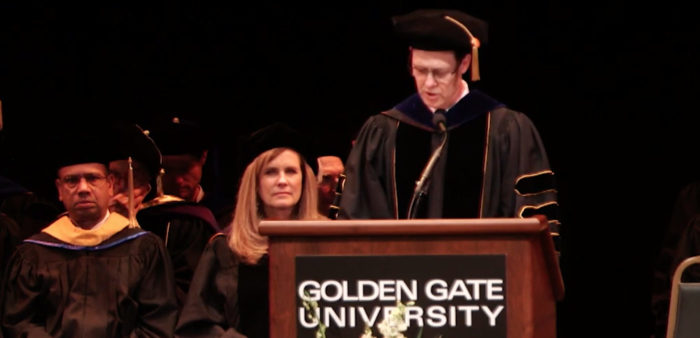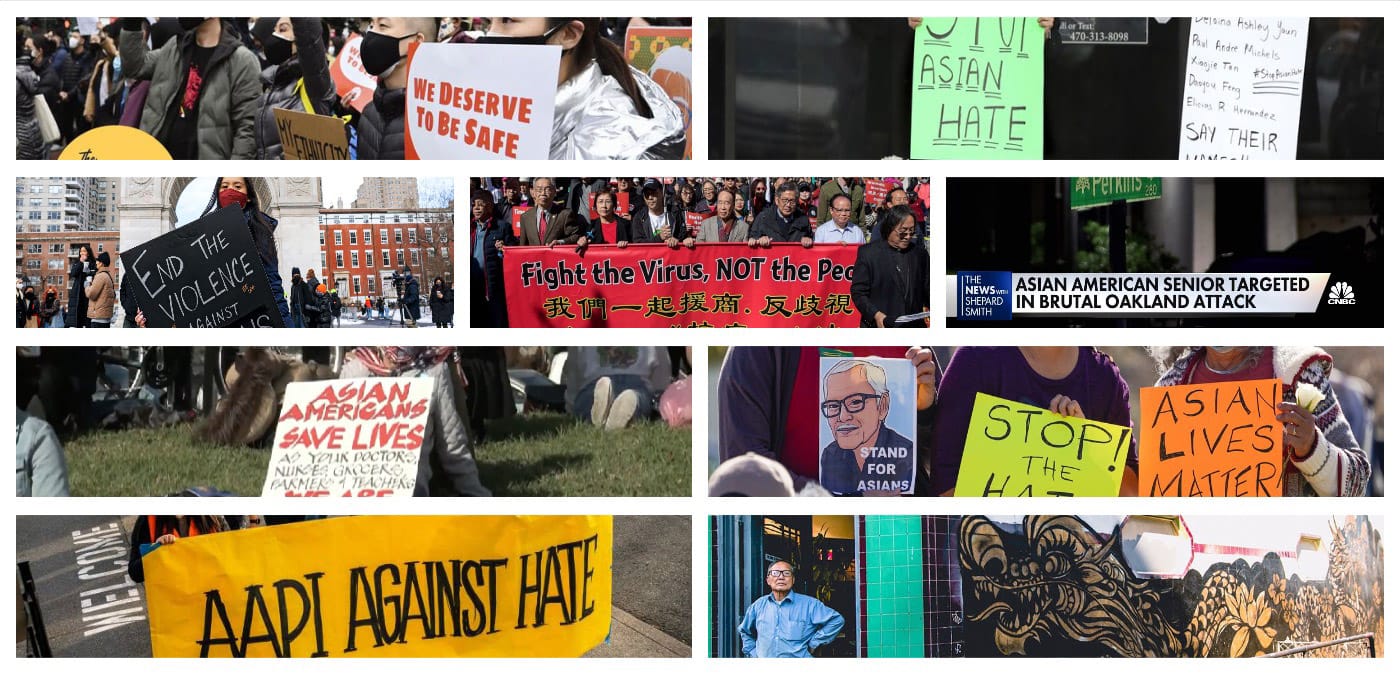
Anti-Asian Discrimination and Attacks
President Fike speaks about the shocking and vile rise in Asian hate crimes and how such attacks are attacks on us all.
Dear GGU Community,
This week, I shared my optimism about the news that the pandemic may soon see an end. Now, however, that uplifting news competes with headlines about the shocking and vile rise in Asian hate crimes.
Golden Gate University is home to many Asian American and Asian students, faculty, staff, and alumni, and we are an integral part of San Francisco’s SoMa Pilipinas neighborhood, an Asian American cultural heritage district. For these reasons, among many, I feel it is necessary to speak out on this important topic.
Tuesday evening, eight women—most Asian—were killed in three shootings at Atlanta-area spas. This follows the unprovoked killing of an 84-year-old Thai American in San Francisco; the assault and robbery of a 64-year-old Vietnamese American woman in broad daylight in San Jose; the assault of three people in Oakland’s Chinatown on the same day in January; and the face slashing of a 61-year-old Filipino American riding a New York subway.
The organization Stop AAPI Hate, which tracks discrimination and xenophobia against Asian Americans and Pacific Islanders, found nearly 3,800 incidents of hate, discrimination, or attacks from March 2020 through February 2021.
That several of the assaults took place in the Bay Area is disheartening and alarming. To many people throughout the world, the San Francisco Bay Area is admired for embodying a deep commitment to the values of inclusion, diversity, equity, and social justice. Our educational institutions produced the first ethnic studies programs in the nation. Our cities and corporations propagate these values not just in policies, but in practice. Our communities are sanctuaries for immigrants fleeing persecution and hate.
Many of us live here because we cherish the vibrancy of ethnic and racial diversity. To see any group in our community suffer like this is a jarring reminder that there is no safe harbor from hate.
We recognize that California has been central to the long history of anti-Asian prejudice dating back to the 1800s. In 1850, white gold mine and railway workers felt threatened by Chinese labor, resulting in a “foreign miners tax” that led many Chinese workers to abandon the mines. In 1882, Congress passed the Chinese Exclusion Act, whose influence on immigration policy stood for decades. Filipino agricultural and service workers faced “Positively No Filipinos Allowed” signs on the doors of establishments and social halls. And 60 years later, in what is surely among the most shameful of its official actions, the U.S. government forcibly placed 120,000 Japanese Americans in internment camps— questioning their loyalty during World War II.
But most insidious has been the continued, less-visible discrimination since then, including the ill-informed assumption that the so-called Asian American “model minority” cannot face bigotry while simultaneously enjoying social and economic equality. In fact, many Asian Americans endure widespread bigotry rooted in xenophobia, envy, and cultural ignorance—regardless of their economic and social status.
Sometimes, these are racial microaggressions by well-intentioned friends, neighbors, teachers, and colleagues. Other times it is more visible, such as when our last President derisively used the terms “Wuhan virus” and “China virus,” and when broadly racist attitudes infected our national discourse.
Regardless of the source, the result is that many Asian Americans feel belittled, angered, frustrated, alienated, and invalidated as perpetual foreigners.
It is tempting to say, “This is not who we are” when confronted with shocking events such as those of the past weeks. In fact, it is who we are sometimes. To discount that ignores our shared responsibility to respond. Those who commit these acts do so with impunity because they think no one will care. But attacks against immigrants and Asian Americans are attacks on us all, and, as with the Black Lives Matter movement, we need a collective response and fearless action.
To those of you who are Asian American, we see you and appreciate your struggle. For those of us who are not Asian American, we must boldly take time from our personal and professional lives to listen and pay more attention. Many friends, colleagues, alumni, and students are silently hurting now; acknowledging the news and offering support and sympathy is important. More broadly, we can be allies by lending our time and energy to a variety of efforts, such as donating to Asian Americans Advancing Justice or Hate is a Virus, or learning how to intervene when we see Asian American harassment.
These are just a few examples. Anchored on our more than hundred-year-old mission of leadership and service, GGU’s call to action is to be aware, elevate respect, provide care, and demonstrate support.
I would like to think that one day I won’t feel compelled to write such emails. But racism, bigotry, and xenophobia have a long and persistent history in our country. We cannot stand pat or remain indifferent against these formidable waves of injustice. As James Baldwin once said, “Not everything that is faced can be changed, but nothing can be changed until it is faced.”
Be well,
David
Dr. David J. Fike, President
Golden Gate University

